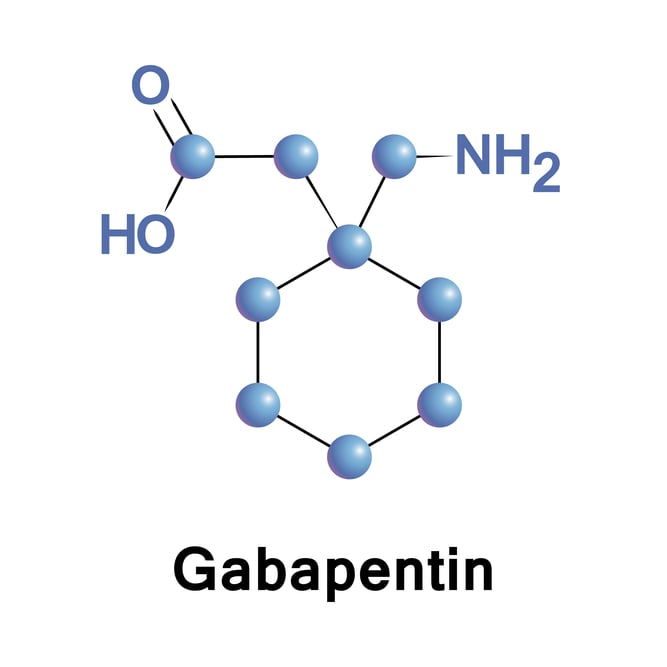Gabapentin is a drug used to treat epileptic seizures and nerve pain. It’s also used to treat restless leg syndrome.
The amount of time that gabapentin effects last depends on factors such as:
- Your dose
- Your health conditions, especially liver or kidney conditions
- Whether you’re using a long-acting or short-acting formula
- Whether you’re using other drugs, especially antihistamines, antidepressants, or pain medications
Depending on what condition you’re using gabapentin for, you may be prescribed to take it every eight or 12 hours. If you take it as directed, then one dose should last until the next one (unless your doctor directs otherwise).
Once you’ve stopped feeling effects, it’s important to remember that you can still test positive for gabapentin on a drug test for a period of time later.
How Long is Gabapentin Detectable by a Lab Test?
Gabapentin is not abused commonly enough for most organizations to worry about testing for it. But it’s still possible—several tests exist that can find gabapentin use.
If you have a gabapentin prescription that you use as directed, then tell the person conducting your drug test that you take gabapentin.
The amount of time that gabapentin is detectable by a lab test depends on the kind of test. Gabapentin stays in your urine for a different amount of time than blood, hair, or saliva.
How Long Can Gabapentin Be Detected in a Lab Urine Test?
Gabapentin starts showing up in a urine test around 24 hours after you use the drug.
It usually only shows up as a positive result for a day or two after that, but gabapentin can show up in a urine test up to 36 hours later.
That makes the useful window of time for a urine test about one to three days for gabapentin.
How Long Can Gabapentin Be Detected By Blood Tests?
Blood tests start detecting gabapentin in your blood around five hours after you use it. They stop working about seven hours after use, making their window of usefulness just two hours.
How Long Can Gabapentin Be Detected By Hair Tests?
It is very uncommon that a hair test will be used to detect gabapentin. However, it is possible that your hair could harbor gabapentin for up to 90 days after you use it (or longer).
How Long Can Gabapentin Be Detected By Saliva Tests?
Saliva tests can’t detect gabapentin, as their window of usefulness is too short.
Does Gabapentin Build Up in Your System?
Gabapentin leaves your body at a set rate even if you use it regularly. It can’t build up in your system unless there is another factor that affects how you metabolize the drug.
Factors that affect how you metabolize drugs include:
- Drug tolerance
- Your kidney and liver health
- Your drug abuse history
- Other substances or drugs that you take
Does Gabapentin Show Up on a 10-Panel Drug Test?
Standard 10-panel or five-panel drug tests do not test for gabapentin as of 2019. If you’re facing a drug screening, the test will only detect gabapentin if the person or organization testing you checks for those substances specifically.
Over 44 million people take gabapentin by prescription every year in the United States, and it’s not a controlled substance.
It’s unlikely that your employer, treatment team, or legal offices will test you for gabapentin unless they have a reason to believe you might be abusing it—such as a history of opioid abuse or abusing multiple substances.
How Does Your Body Process Gabapentin?
Most people who use gabapentin take it orally as a tablet. Some people crush gabapentin and snort it or inject it. These methods are riskier than taking the drug orally.
When you take gabapentin by mouth, it reaches the stomach and digestive system, where it begins breaking down and absorbing into your bloodstream.
Once it enters your blood, gabapentin begins to cause effects. This normally happens within eight hours, but long-term effects can take up to two weeks to start.
The effects of gabapentin can include:
- Dementia
- Delusions
- Mood changes
- Pain relief
- Problems with coordination
- Seizure control
- Tremors
- Uncontrollable eye movements
- Vision changes
- Weakness
- Weight gain
You are more likely to experience severe effects if you abuse the drug or take it with other substances.
At the same time that gabapentin is moving through your bloodstream, your kidneys are filtering it out into your urine. This happens continuously after you take the drug until it’s all out of your bloodstream.
Get Treatment for Gabapentin Abuse
If you abuse gabapentin, chances are that you abuse other drugs along with it. In fact, people who use gabapentin are more than three times as likely to abuse other pain medications, including methadone and morphine.
This is known as multi-drug abuse and it is very dangerous to your health.
Using multiple substances at the same time puts you at increased risk for effects such as:
- Addiction
- Death
- Coma
- Overdose
- Seizures
- Respiratory Failure
There’s no drug to reverse a gabapentin overdose, so it’s important to get help if you abuse gabapentin.
The help of a substance abuse treatment center can give you the support you need to detox from gabapentin and other drugs. What’s more is that your treatment is personalized because no two people have the same needs.
Today is the perfect time to start treatment—in fact, there’s no better time than now. Call Northeast Addictions Treatment Center today to get the process started and begin your recovery journey!


